From June 3 to 5, the International Seminar on Human Resources and Talent Innovation Development and the Exchange Meeting on Human Resource Management Professional Construction were held in Shandong Academy for Leadership and Administration, sponsored by the School of Management of Shandong University and Shandong Institute of Talent Development Strategy of Shandong University, and co-organized by Shandong Home for Talents, Shandong Young Social Scientists Association and Shandong High-level Talents Development Association.
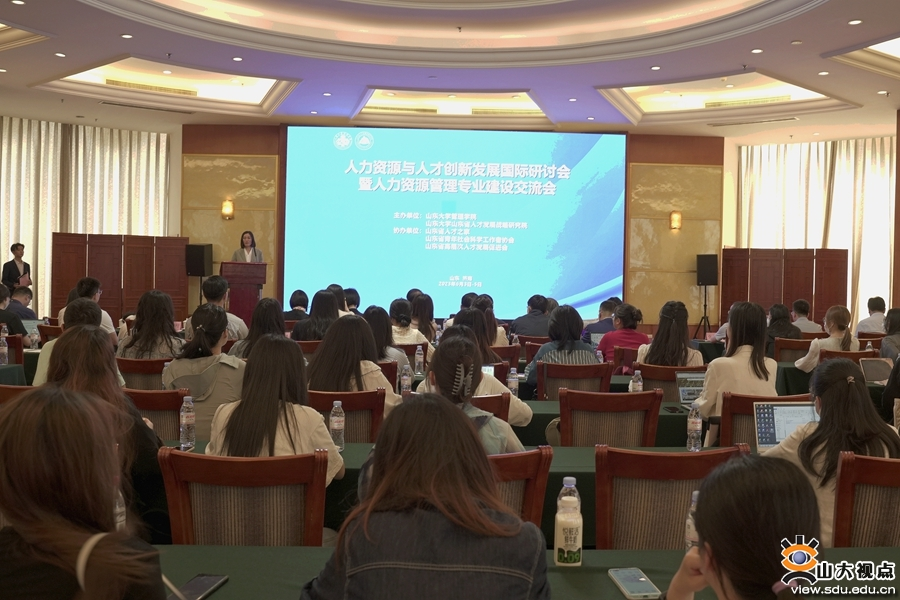
The seminar was attended by Qu Mingjun, Member of the Standing Committee of the Party Committee and Director of the Organization Department of Shandong University, Zhao Shuming, Professor of the Business School of Nanjing University, Li Yanping, Professor of the Economics and Management School of Wuhan University, Gu Qinxuan, Professor of the Antai College of Economics and Management of Shanghai Jiaotong University, Luo Jinlian, Professor of the School of Economics and Management of Tongji University, Tang Ningyu, Professor of the Antai College of Economics and Management of Shanghai Jiaotong University, Du Pengcheng, Professor of the School of Business of Anhui University, and Zhang Zhengtang, Professor of the Business School of Nanjing University. Tang Guiyao, Associate Dean of the School of Management of Shandong University and Executive Director of Shandong Institute of Talent Development Strategy, presided over the opening ceremony and the keynote speeches.In his speech, Qu Mingjun introduced the mission of Shandong University and the implementation of the strategy of strengthening the university with talents and academics.
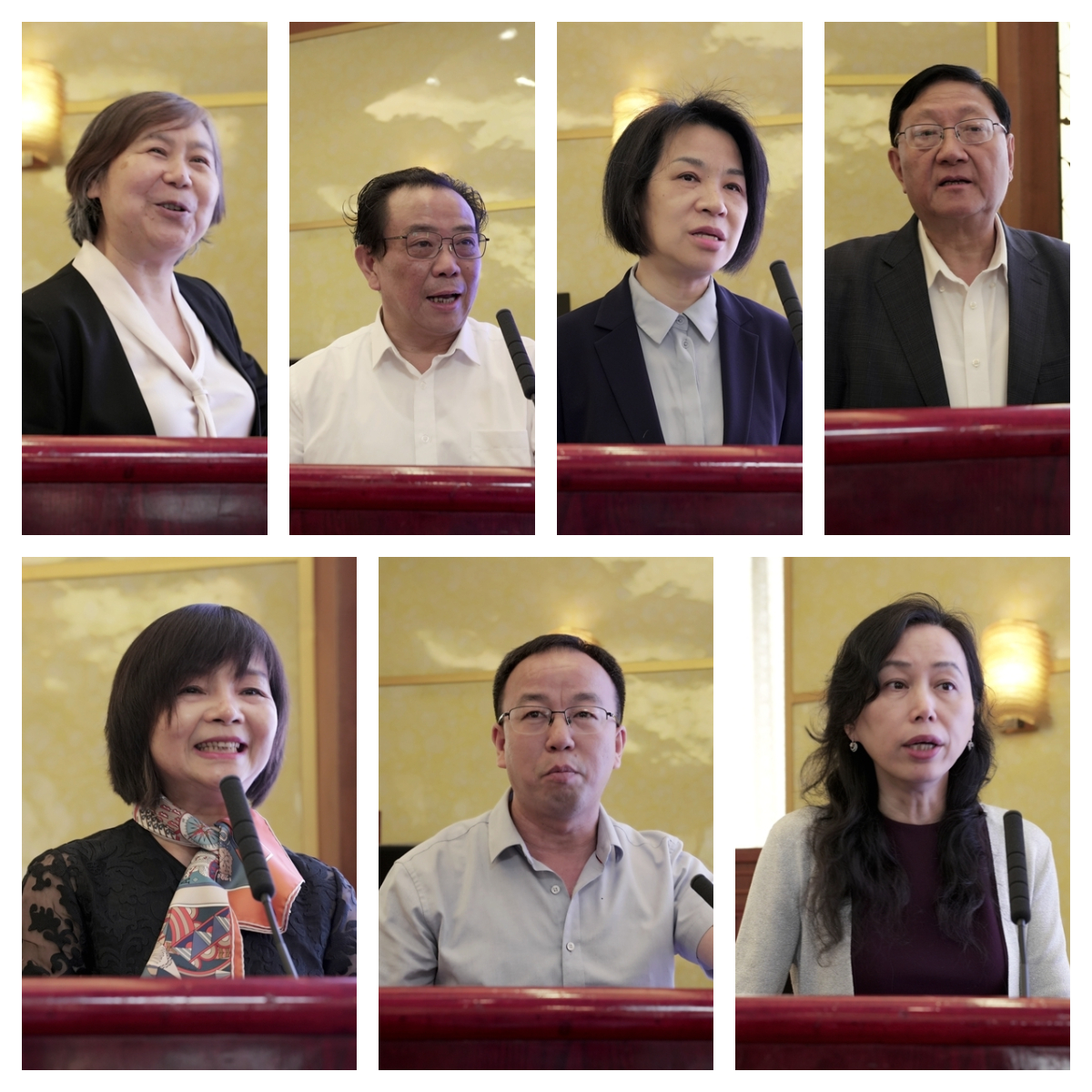
In the keynote speeches, seven experts and scholars shared their academic experiences in the field of human resources and talent innovation development. Professor Zhao Shuming pointed out that to achieve work-life balance, it is necessary to both realize self-management and give full play to the four levels of the individual, the organization, the society and the state to constantly find balance and create the future. Professor Li Yanping focused on the high-quality development of talent service enterprises in the era of digital intelligence, and elaborated the future research of digital intelligence talent service from three levels: the basic understanding of talent service enterprises, the opportunities and challenges faced, and the path of high-quality development. Under the social background of in-depth analysis of intergenerational changes in the workplace, Professor Gu Qinxuan introduced the internal and external driving forces that promote comprehensive compensation to comprehensive recognition and the specific forms of recognized by employees, and put forward systematic insights on better implementation of employee recognition programs in the light of actual practice. Professor Jinlian Luo explained how to focus on exploratory research to serve national strategies with his own research work, emphasized that it should aim at the national strategy and match the mission of the time, and introduced a series of case studies on three themes, such as civil-military integration, Beidou system, and digital economy. Professor Tang Ningyu addressed the problem of inconsistent results of gig job satisfaction in the current research to launch further research through innovative data sources and analysis methods, and pointed out that gig job is an inevitable way of employing workers, and each individual deserves to be valued. Professor Du Pengcheng took the case of Gujing Group as the starting point, combined his academic research with a comprehensive analysis of digital literacy and digital technology, systematically explained the framework and enhancement path of digital literacy, and analyzed the synergistic concept, research status and research outlook of digital technology and digital literacy. Based on the basic status of research in the field of compensation, with the theme of the research on the relationship between horizontal salary differences and employee turnover and organizational performance from a dynamic perspective, Professor Zhang Zhengtang analyzed the current hot topics of research in this field, and proposed ways to innovate research methods in the field of compensation.
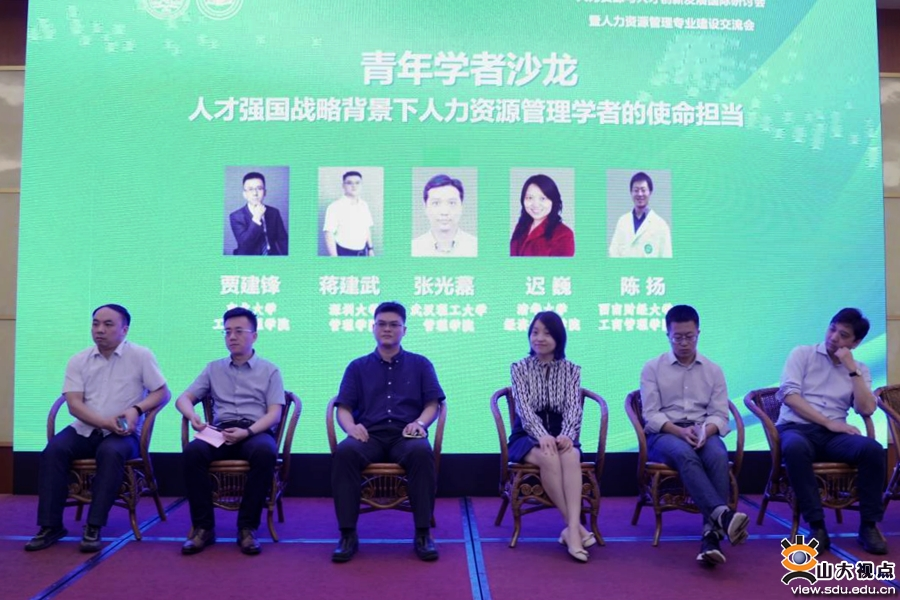
With the theme of mission and responsibility of human resource management scholars in the context of the strategy on developing a quality workforce, Young Scholars Salon invited Guo Kai from the editorial board of Journal of Management, Jia Jianfeng, professor of the School of Business Administration of Northeastern University, Jiang Jianwu, professor of the School of Management of Shenzhen University, Zhang Guanglei, professor of the School of Management of Wuhan University of Technology, Chi Wei, professor of the School of Economics and Management of Tsinghua University, and Chen Yang, professor of the School of Business Administration of Southwest University of Finance and Economics to discuss about teaching, research, professional construction and social service. This session was moderated by Liu Bing, Professor of the School of Management of Shandong University and Head of Department of Leadership and Organizational Management. Starting from the curriculum system of human resource management major of Wuhan University of Technology, Professor Zhang Guanglei explained the importance of promoting the integration of time and space in the classroom by flipping the classroom and multiple practical courses. Professor Guo Kai shared the future construction and development of HRM discipline from the perspective of journals with the three key words, “China, practice and culture”, and emphasized the need to develop vivid case studies of HRM with Chinese characteristics based on local conditions. Professor Jia Jianfeng pointed out that in the education and teaching process of HRM, lecturers should not only introduce their own research content into teaching to enhance students’ interest, but also provide theory and practice to meet students’ deep demand of participation. Taking the three roles of teachers as the starting point, Professor Jiang Jianwu pointed out the highlights in the training mode of HRM majors in Shenzhen University: focusing on the exploration of knowledge, offering practical courses, building talent service professional microspecialties, and striving to be student-oriented. Professor Chi Wei shared the characteristics of Tsinghua University’s School of Economics and Management in undergraduate and graduate training----not only to adhere to the “student-centered” concept by classifying and differentiating students’ needs and ideas, but also to integrate production and learning by providing resources and guidance for students and encouraging students to participate in practical activities. Professor Chen Yang emphasized that students should be led to go deep into enterprises at the early stage of teaching and do research based on practice, so that they can publish articles that can be recognized by journals and enterprises with higher evaluation, and in turn help enterprises to make suggestions and realize research results.
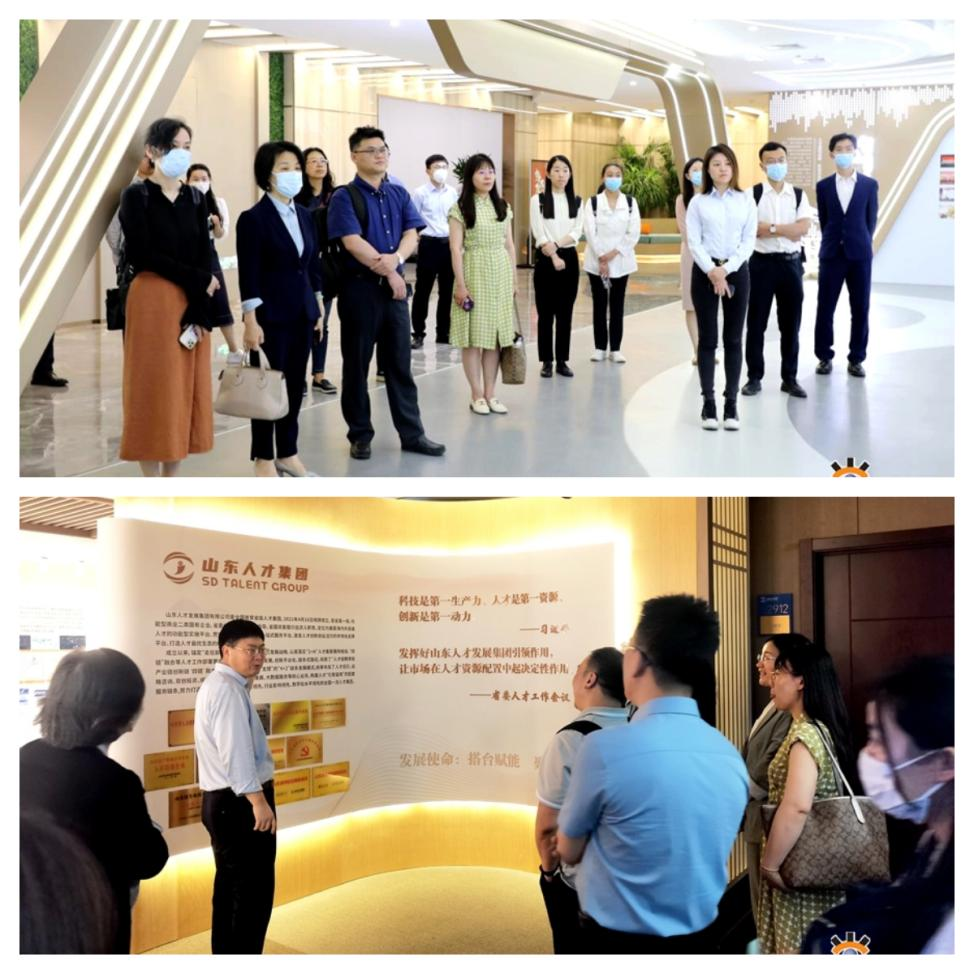
In the afternoon of June 4, the participating teachers and students visited Talent Development Institute of Shandong Expressway Group Co., Ltd. and Shandong Talent Group Co., Ltd. and exchanged and discussed with persons in charge and front-line employees of the enterprises on the combination of theory and practice of human resource management.
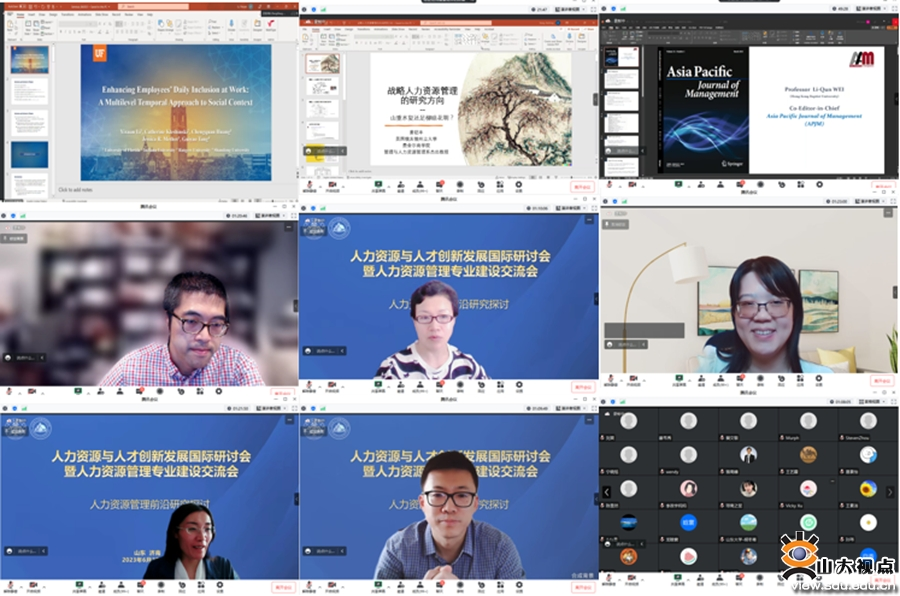
In the morning of June 5, around the frontier research of human resource management, Professor Wei Liqun from Hong Kong Baptist University, Professor Jiang Kaifeng from Ohio State University, and Professor Li Yixuan from University of Florida conducted in-depth exchanges and discussions on the research direction of strategic human resource management, improving the daily work inclusion of employees, and the publication of APJM. Wang Zheng, associate professor of the School of Management of Shandong University, hosted the seminar.
The conference focused on human resources and talent innovation development and human resource management professional construction. More than 300 teachers and students from the School of Management of Shandong University participated in the forum offline and online.